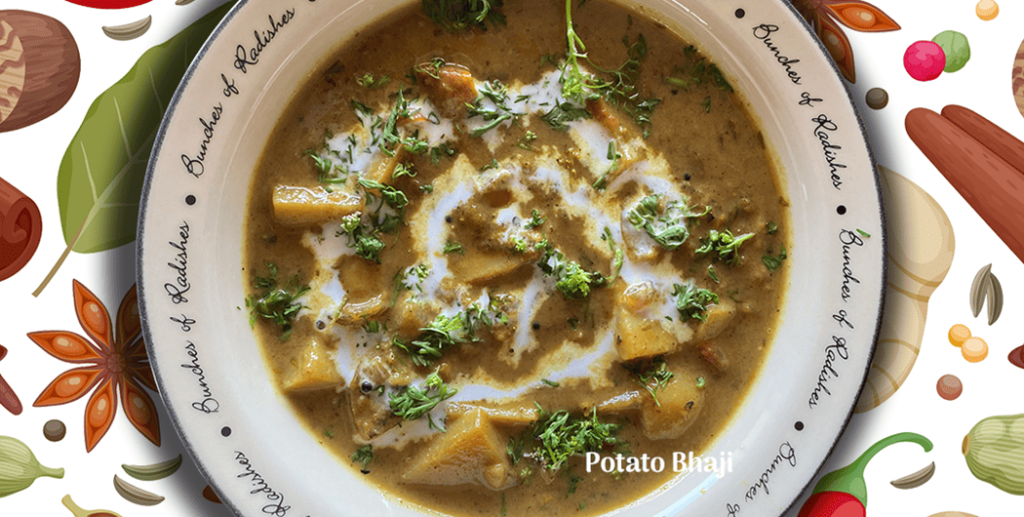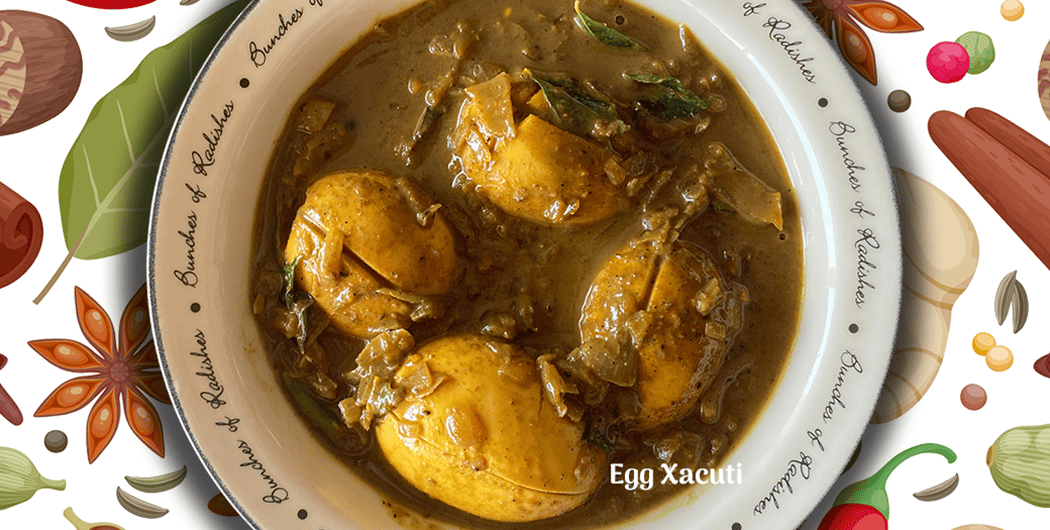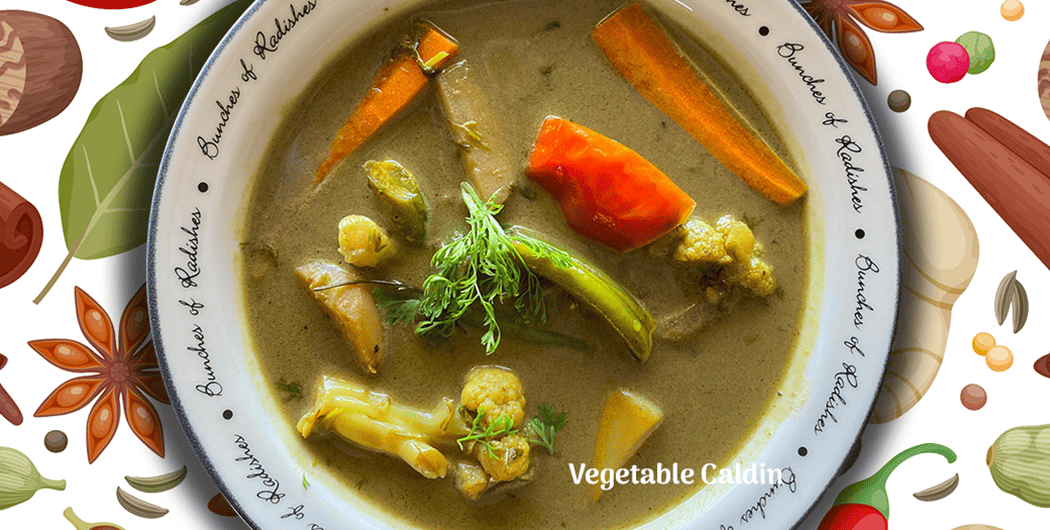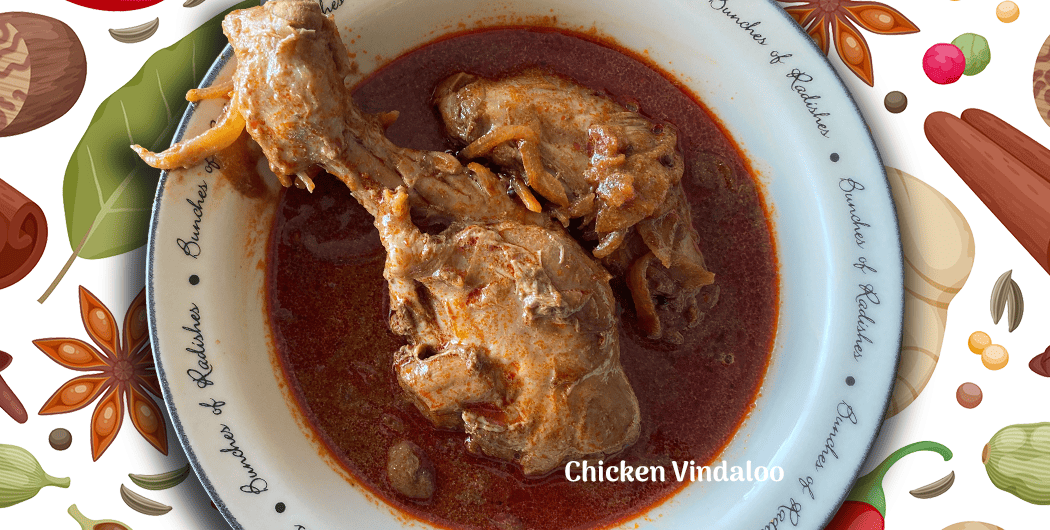Vegetarian cuisine is not something one normally associate with Goa, given the overwhelming slant both locals and visitors place for meat and seafood dishes. But hidden and unknown, there is a treasure trove of traditional and classic vegetarian fare that one finds in every village in Goa, and the repertoire of the Gavli tribe is unparalleled in its vast variety and superb taste. Being strict vegetarians, the Gavlis have perfected their masalas to suit various vegetables and tubers, creating some of the iconic vegetarian dishes that form part of Goan cuisine. This traditional bhaji, which generally means curry, is originally made with sweet potato and is a common and regular everyday preparation in the Gavli community for perhaps centuries, undergoing very little variation. However, this masala has been used, because of its versatility, to create some innovative fries and curries especially by home cooks who find the taste and texture of the masala irresistible.
Our Gavli Bhaji masala is a spice blend that keeps the integrity of the original Gavli masala intact, offering you a peep into the delicious foods of Goa’s original inhabitants. This traditional recipe for Batato Bhaji or Potato Curry is coconut milk based, and calls for a thick gravy coating the potatoes, and is rarely made as a watery curry. The following step by step illustrated method will show you how simple it is to arrive at this classic tribal Goan preparation, the way it continues to be made in Goan homes generation after generation. Like all our other masalas, this masala too does all the hard work, needing very little added ingredients, and makes Goan food accessible, desirable, and simple to make, allowing you to be not only an expert in Goan cooking without spending too much time in the kitchen but also a connoisseur of traditional Goan cuisine. Enjoy.
What you need –
- The women of fatorda Gavli Bhaji Masala
- Salt to taste
- Potatoes – 1 Kg cut into cubes
- Onions: 2 medium finely chopped
- Ginger Garlic paste: 1 teaspoon
- Tomato: 1 medium
- Coconut Milk: 1 Cup
- Coriander leaves for garnish.

Rohoni Hiranwale
This Potato bhaji is an iconic dish of the nomadic Hindu Gavli tribe of Fatorda. This recipe is from Rohoni Hiranwale who hails from the Gavliwado locality, and is passed on to her by her elders within the tribe.
Step 1 – Wash the potatoes well and cut them into bite sized cubes. Keep it in a bowl filled with water.
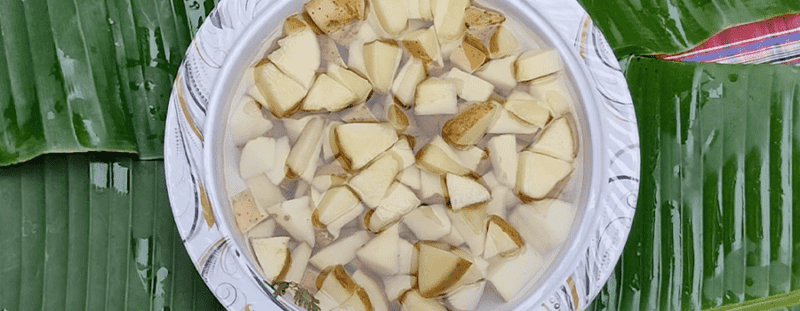
Step 2 – Heat 2 teaspoons of oil—coconut oil is the traditional choice but you can use any oil at hand. To that add the onions finely chopped.

Step 3 – Sauté the onions until they become soft and translucent. Add 2 teaspoons of ginger garlic paste.
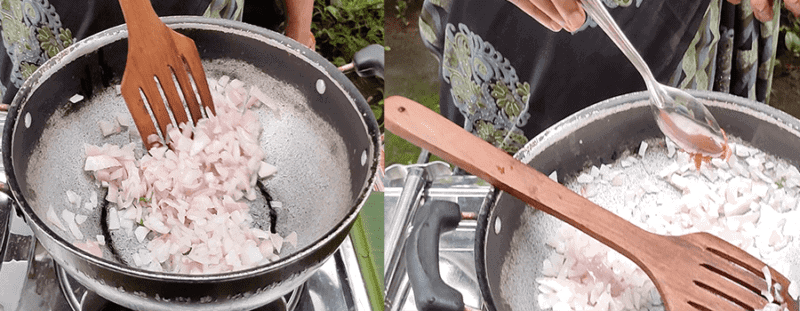
Step 4 – Fry the onions with the paste until they turn slightly brown. Add the tomato, chopped.

Step 5 – Fry until the tomato pieces become soft and the mixture becomes a semi paste. Add the potatoes.
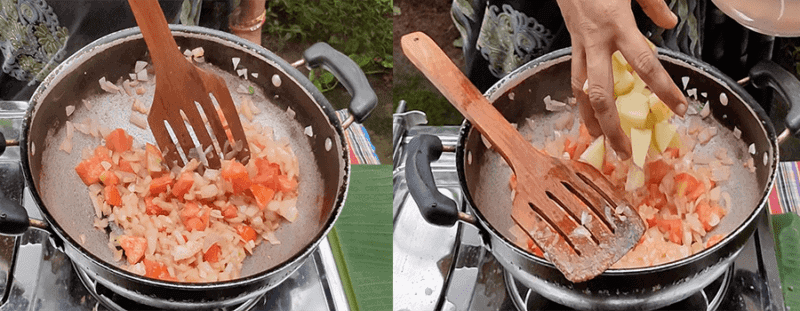
Step 6 – Mix them well with the fried tomato and onion paste and fry for a minute, mixing continuously.
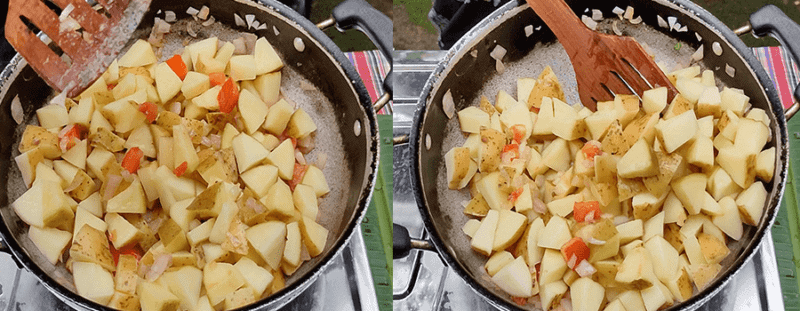
Step 7 – Add 2 tablespoons of our Gavli Bhaji masala.

Step 8 – Mix throughly and allow it to fry for a minute. Add a cup of water and mix well.
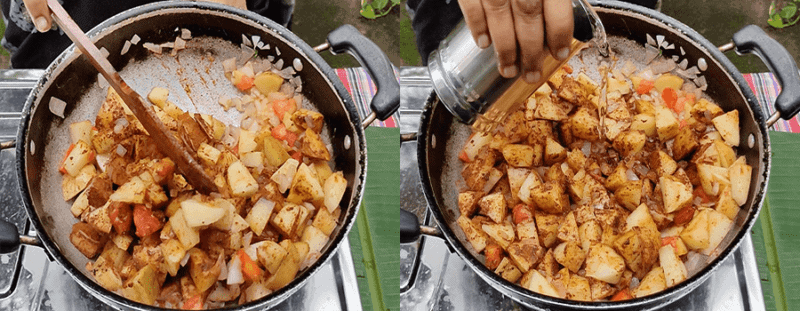
Step 9 – You can add salt now, depending on your preferences and again mix the ingredients thoroughly.

Step 10 – Cover the vessel and cook on a medium flame for about 10 minutes.
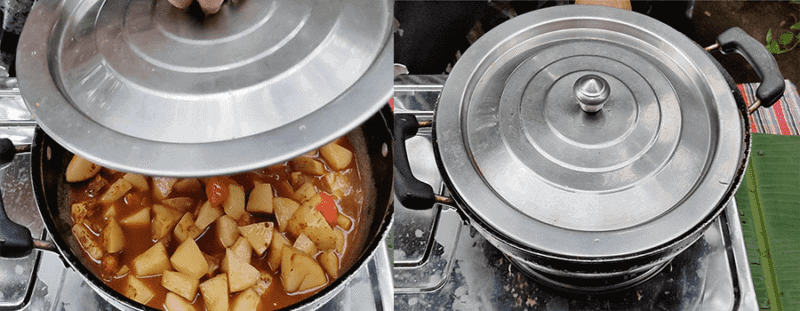
Step 11 – Remove the lid after about 10 minutes and stir lightly. Add a cup of thick coconut milk to the potatoes.
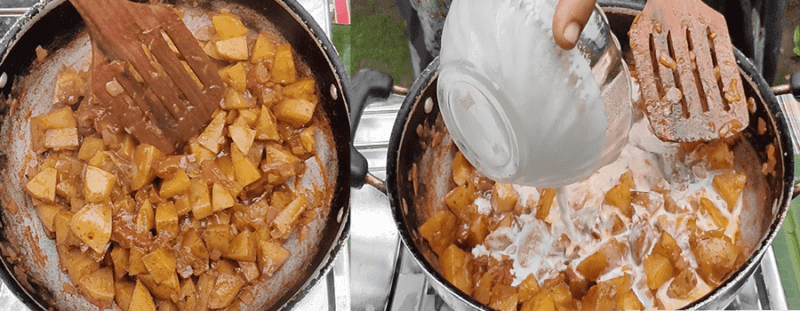
Step 12 – Cook for another minute or when the potatoes are fully cooked and the water has reduced. Add the chopped green coriander as garnish.
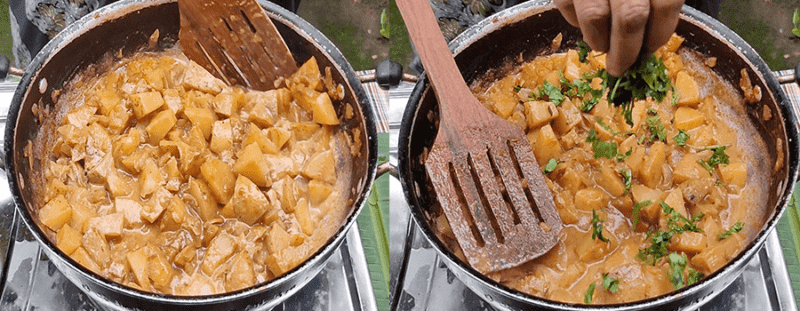
Step 13 – Switch off the flame and let it cool for a minute or two.
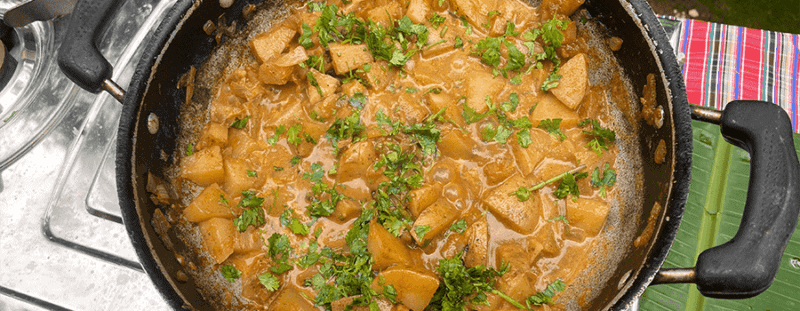
Step 14 – Your Gavli Potato Bhaji is ready to be served hot with chapati or poi (Goan bread).
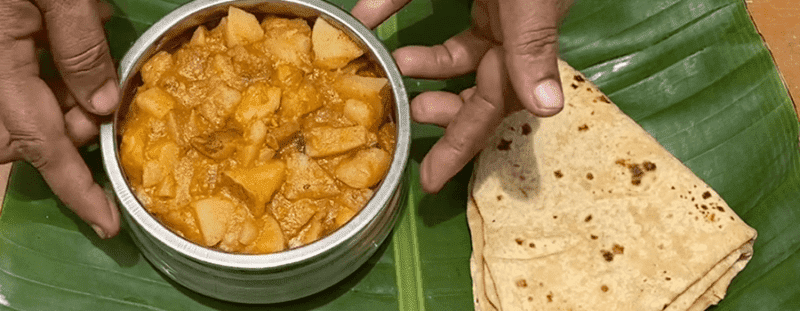
Note – Traditionally this masala is used with sweet potato or potatoes but works extremely well with yam and other tubers. Many traditional North Indian dishes that use potatoes as an ingredient like Aloo Mutter or Aloo Gobi can be made with a Goan twist with this masala. Since this masala was devised for essentially vegetarian food, how it compliments meats or seafood is not understood yet. But these make excellent curries with egg as an ingredient, and many egg preparations have turned out to be winners including Egg Burjis and even omelets. The bottom line is that your imagination is the limit. Do experiment with our masala and let us know how your personal recipes have worked out at [email protected] and we will feature your preparations on our website. You can upload your recipe here.





